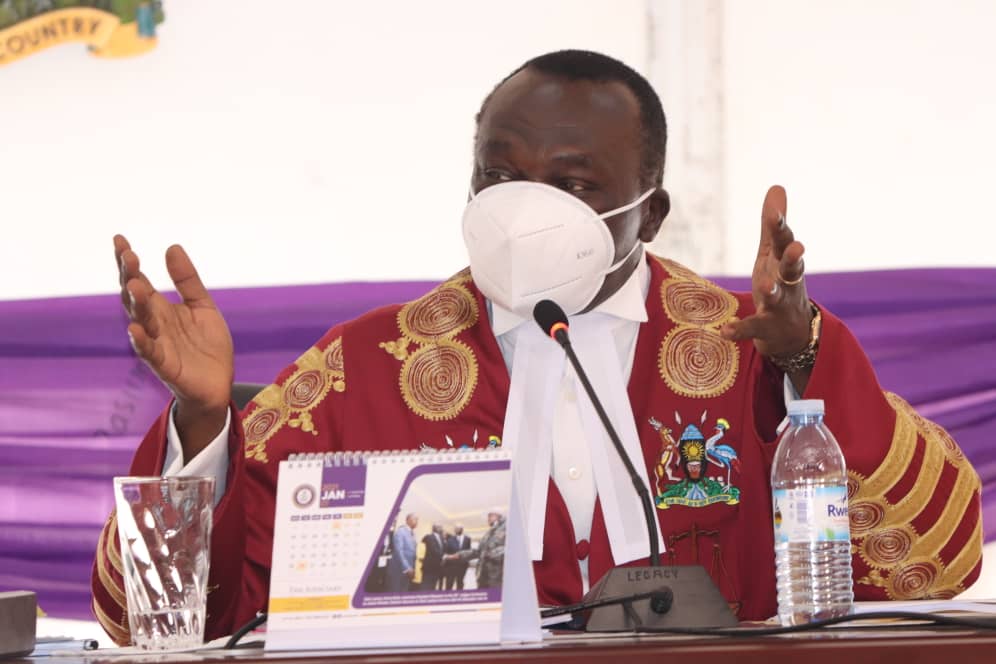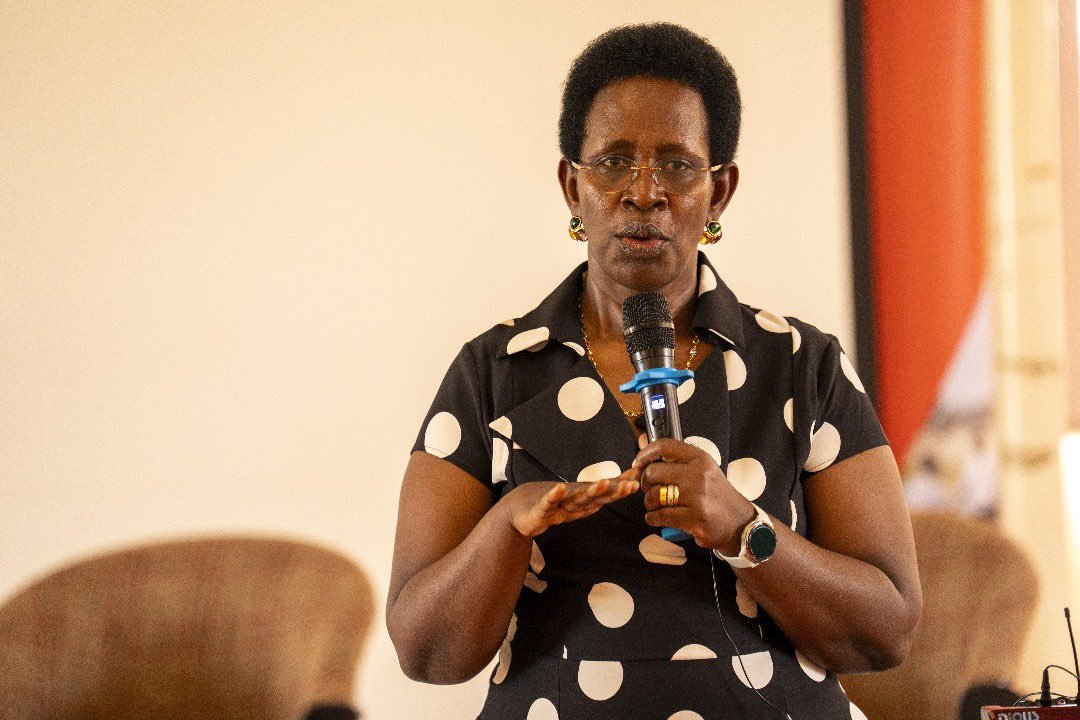Cabinet has approved the construction of eight regional appellant Courts across the country to take justice closer to people, the Chief Justice Alfonse Owiny-Dollo has revealed.
He was officiating at the 23rd Annual Judge’s Conference held at Mestil Hotel in Kampala on Monday under the theme “The Administration of the Judiciary Act and Sustainable Transformation of the Judiciary”.
According to the Chief Justice, the Construction of regional Appellate Courts will start this financial year in Mbarara and Gulu districts where they have already secured land. He says the project will extend to Masaka, Arua, Mbale Jinja, Soroti, and Mubende districts in the coming financial years when the funds come in.
Currently, Uganda has a single appellant court, which seats in Kampala. According to the Justice, the president also agreed to the phased increase of the judiciary from Shillings 376 billion to Shillings 800 billion Shillings in three financial years starting the current financial year.
He notes that there has been increased demand for access to justice. Justice Alfonse Owiny-Dollo noted that to increase access to justice, they intend to operationalize six new High Court Circuits in Moroto, Tororo, Iganga, Luwero, Hoima, and Rukungiri districts.
He explained to achieve this, they need to recruit 14 new Judges, adding that the Judicial Service Commission has started inviting suitable candidates to submit their applications for consideration.
Justice Owiny-Dollo noted that many people have been traveling long distances to access courts, especially the Magistrate’s Court. He said a process is underway to have a Chief Magistrate in each district establish a Grade One Magistrate’s Court in every Constituency.
He says that there is a need to strategize on how best to respond to the demands of justice seekers by ensuring regular hearing of cases, timely delivery of decisions, effective supervision of lower courts, and introduction of progressive innovations in dispensing justice.
He, however, noted that attaining access to Justice, will depend on all government agencies like the office of the Director of Public Prosecutions, the Police, and the Uganda Human Rights Commission among others involved in the administration of justice.
He noted that empowering the Judiciary alone without empowering the other players might not result in the meaningful dispensation of justice.
Speaking at the same venue, the Acting Minister for Justice and Constitutional Affairs, Muruli Mukasa appealed to the Judges to observe qualities such as listening properly, answering wisely, considering soberly, and making decisions impartially.
According to Mukasa, these qualities will enable judicial officers to fight injustice and earn themselves respect as well as make the public much more confident in the justice system.
On her part, Lady Justice Damalie Lwanga, the head of the Judiciary Training Institute, which is in charge of Organising the conference revealed that they are working tirelessly to make sure that their institute gets fully accredited by the National Council for Higher Education such that they continue training judicial officers on how to execute their duties in line with the required standards.
The conference is to last for four days. Some key issues to be discussed are the challenges associated with the newly enacted Administration of Judiciary Act of 2020, which strengthens the independence of the judiciary, performance of the Supreme Court, Court of Appeal/Constitutional Court, and the High Court circuits among other issues.

















